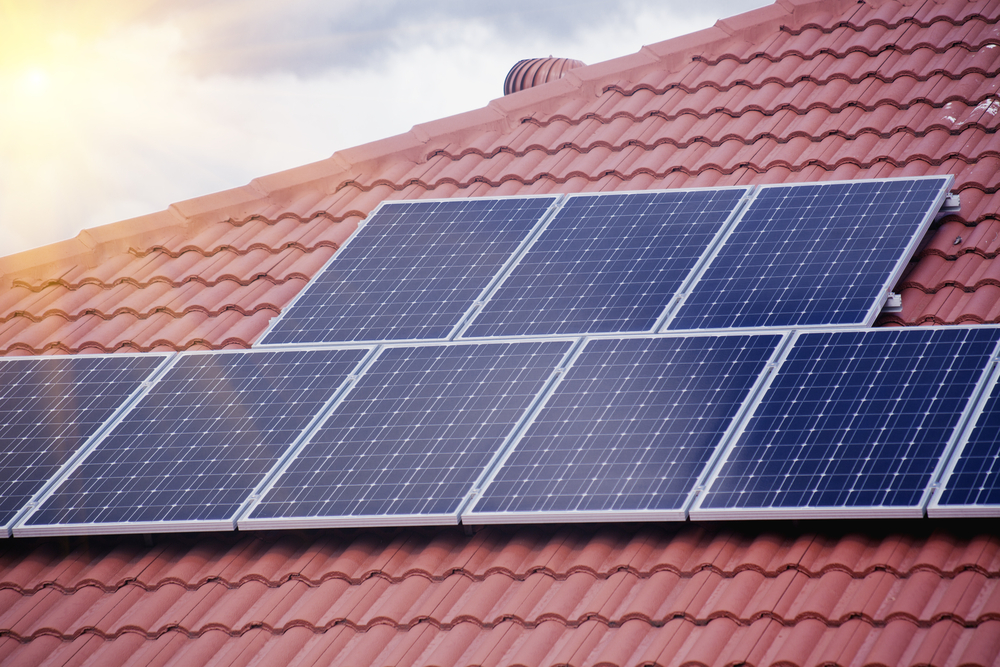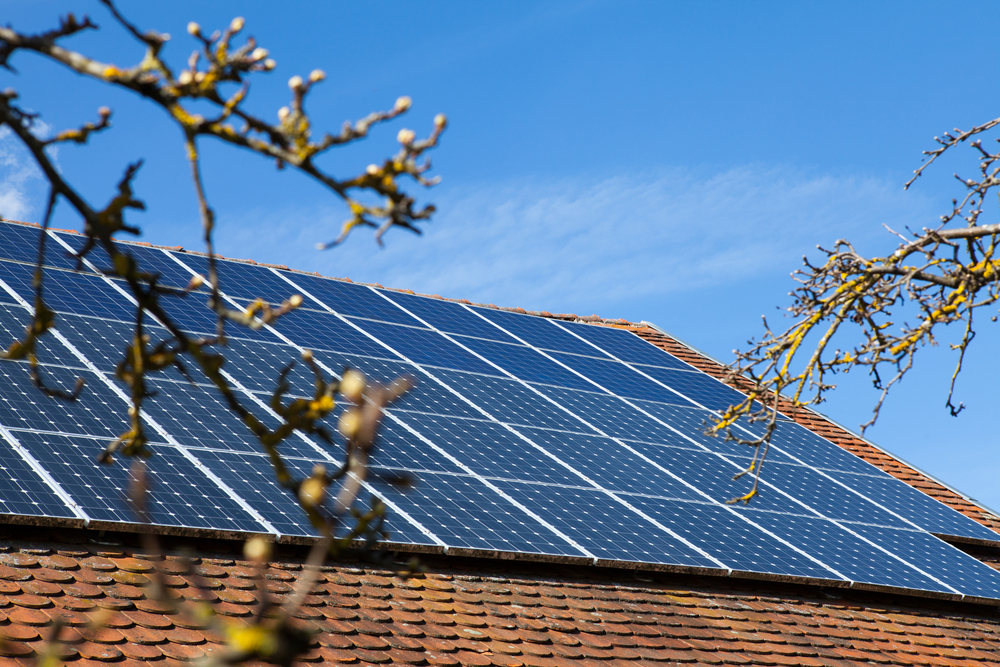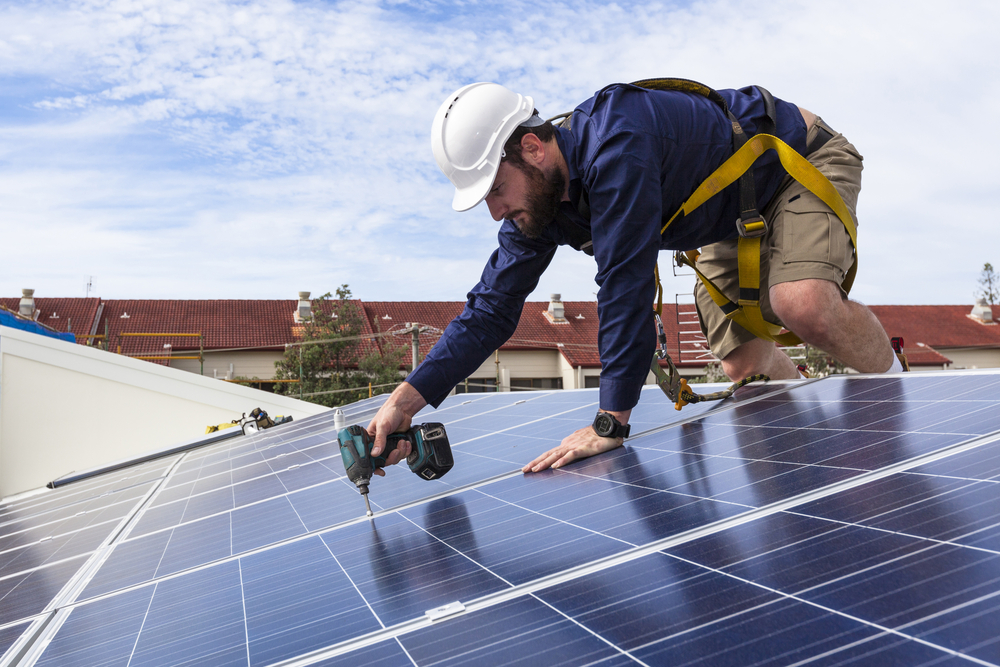India is so geographically gifted in terms of receiving solar energy, that out of 365 days, it receives almost 300 days of ample sunlight, making it one of the best countries to harness solar energy. Both in urban and rural India, rooftops over house and commercial complex receives a good amount of sunlight. These rooftops are ideal for harnessing solar energy by converting into electricity.
With technological advancements and a rise in consumer awareness, people installing rooftop solar has become a new norm. The technological advancement has also helped to lower the cost of the equipment involved. Installing rooftop solar panel is an incredible way to generate electricity for your home and business, without negatively impacting the environment.
Although the rooftop solar system can be used for creating electricity, there are many considerations you need to make before you decide to go with it.
To help you with your decision about installing solar power on your house or a business rooftop, we have put together some information you need to know and consider before you install those rooftop panels.
What are Different Types of Solar Panel System?
Before you start exploring solar companies options, you first need to know the different types of solar panels system available in the market. This will narrow down your search and help you make a better decision.
On-Grid Systems:
The on-grid system in one which the rooftop solar is integrated with the main grid power supply. This system allows the consumers to use power supply when they are unable to receive power from their rooftop system, especially during night time and days when there is not enough sunlight. This way you can have an uninterrupted flow of electricity through day and night. Thus a well planned rooftop solar system will ensure that you get enough power supply without using the utility grid. In fact, you can earn some credit in your utility account if the excess power generated is fed to the grid for which you get credited a compensation called ‘net metering’.
Off-grid system:
In off-grid systems, the rooftop solar system is not connected to the main power grid. The system is self-sufficient to run on its own with a battery. The solar power generated from the rooftop solar is fed to an inverter where the direct current is converted into alternating current. This system is very useful when there is no grid supply or when the supply is very erratic with frequent breakdowns.
Hybrid Systems:
The hybrid system is a combination of both off-grid and on-grid solar panels. The advantage here is that once a battery is charged the excess energy is fed to the grid which can generate additional income to the consumer.

Here Are The Top Things You Need To Consider Before You Install Those Rooftop Panels
Is Your Roof Damaged?
Before even considering the solar panel installation, ask yourself, “How is my roof?” If you know that your roof is damaged and needs immediate repair, it is probably best to avoid solar panel installation. You should take care of the roof before installation, to avoid dismantling the work and then put it up again.
Another aspect to consider is the warranties of both rooftop solar and your roof. If your solar panel has a warranty of 25 years but your roof could get damaged in 10 to 15 years, it increases the cost of maintenance. Try to match their warranties in order to reduce the time, effort and money you will invest.
The shape of Your Roof
Roof comes in different shapes and size. Before installation, make sure that enough space for solar panels. If there is no space, you are not likely to get any return on your investment.
The Direction of the roof of Your Roof
The solar panel requires a specific angle to receive a maximum amount of sunlight and generate a maximum amount of power. Most professionals recommend your solar panels to face south and many others on the west. Regardless, it is best to consider the direction of the roof before you install the solar panel.
How Much Weight Does your roof can carry?
Installing solar on your solar panels will increase the weight on the structure of your roof. Your roof maybe housing some other heavy equipment including your water tanks. If the solar panels become too much to handle, the roof may collapse. This is physically dangerous for many reasons, not to mention costly. To avoid such disastrous situations, it is advised to evaluate your roof from a professional to determine if any additional support is required to support the solar panels.

Your water management system
When it rains, water runs down the roof into the gutters and drainage, away from your home. When you install rooftop solar, equipment like racking and wire harnesses can clog the water and prevent the water from entering the drainage. In some cases, the solar panels can make the water run in a different direction causing leaking and other water-related problems. If these things happen, you need to repair your roof, which means dismantling your rooftop solar and an increase in maintenance cost.
To avoid these issues, contact both your building contractor and solar panel installer and raise your concerns. They will be able to present you a plan for installation that will prevent such problems from happening.
Managing Severe weather conditions
Part of maintaining your solar panel system is dealing with severe weather conditions like heavy rainfall, hurricanes, storms etc. If your area frequently faces such natural disasters, it is best to be aware of insurance policies since there is potential for your solar panels to get damaged.
The Grid Connection facility
In addition to the structure of the roof, you also need to consider how you are going to connect your rooftop solar to the utility grid. There are a few things you need to ask your local utility providers
- Do they have a net-metring policy?
- Do you need to pay any additional fees?
- How will you be credit through net-metering policy?
- When will you be credited for your excess energy generated?
Did you weigh different options?
Before signing on any agreement please make sure that you have done your research. Picking the first contractor you come across, may seem easy but will cost you money in the long run. If you are really serious about installing rooftop solar, shop around and evaluate at least 3-4 quotes from different dealers. Weigh their options and make sure that the company you choose is reputable and their customers are satisfied.
After you speak with a few contractors, you will be glad you did. You can compare quotes, customer reviews, and other information to make the best, informed decision.

Your Price Bracket
Cheaper solar rarely turn into the best solar panels. Before you set up to buy rooftop solar PV System, consider your budget seriously. Even though, the price of solar technology has dropped in recent years, buying cheaper will leave you in the dark (literally!) Cheaper solar panels are less efficient and manufactured in a way to be less durable, so it decreases your investment value and potential future savings. More importantly, cheaper solar panels are hazardous in many ways, you don’t want to have a fire started due to cheap solar panels.
As a long term investment, it is important to invest your money and time in the right solar panels. In the long run, they will last longer and give you a much higher return.
Do you have the right Insurance?
Having the right will ensure that you get covered for any damage that occurs to yourself and the house during any calamity. Many problems can arise when installing rooftop solar panels that you might not even think about until it happens. There are many building codes, insurance, legal regulations which vary state by state, so it is important to be aware of these regulation and policies.
Remember about maintenance
Keeping your solar panels and roof working for a longer period of time requires following proper maintaining procedures. It is good to find out from your dealer as well as researching a bit yourself the proper maintenance techniques before the installation begins. If you are unable to meet those maintenance requirements, there is a good chance your equipment will not last as long as you want it to.
Conclusion
Solar is a long term investment. Although solar power saves a lot of money in the long run, it carries a huge initial investment. Once the solar panel is installed you don’t have to look back for next 25 years at least, but if you don’t take precautions, this factor could turn into a negative point, as you get stuck with an imperfect panel for next decade at least. You should take at least weeks before you finalize your dealer and the solar energy company you choose. There are so many factors that could go wrong if you are unaware of all the necessary facts. It is best to consult a professional to answer all your questions related to rooftop solar panels.
This is Amit working as a Solar Energy Adviser & content writer. I love to write on topics solar industry to help people improve their solar energy knowledge and stay update continues.

